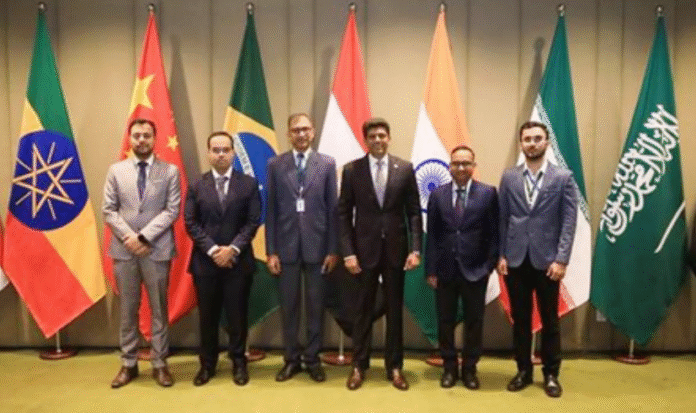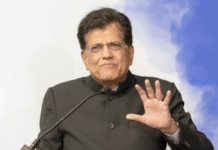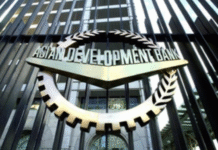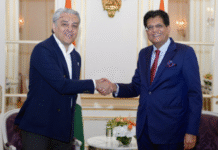Brasilia— India has reaffirmed its commitment to inclusive, sustainable, and future-ready digital development at the 11th BRICS Communications Ministers’ Meeting, held in Brasilia, Brazil.
Representing India, Union Minister of State for Communications Dr. Pemmasani Chandra Sekhar showcased the country’s Digital Public Infrastructure (DPI) as a global model for equitable and transformative digital governance. He highlighted key initiatives such as Aadhaar and the Unified Payments Interface (UPI), calling them foundational to India’s rapid digital progress.
Dr. Sekhar noted that Aadhaar has provided over 950 million Indians with secure digital identities, ensuring seamless access to both public and private services. UPI, he emphasized, has revolutionized real-time payments and now accounts for 46% of global digital transactions.
Calling for deeper cooperation among BRICS nations, the minister urged member states to jointly harness DPI for inclusive economic growth and resilient digital ecosystems. India’s approach, built on open and interoperable platforms, promotes financial inclusion, good governance, and innovation—while helping to prevent digital monopolies, he said.
India’s contributions were framed around four pillars: Universal and Meaningful Connectivity, Space and Environmental Sustainability, and Digital Ecosystems. Dr. Sekhar credited Prime Minister Narendra Modi’s leadership for India’s transition from digital divide to digital leadership.
BRICS now comprises 11 member nations: Brazil, Russia, India, China, Egypt, South Africa, the United Arab Emirates, Ethiopia, Iran, Indonesia, and Saudi Arabia.
Speaking at the meeting, Dr. Sekhar spotlighted India’s thriving startup ecosystem, ambitious digital skills programs, and forward-looking legislation including the Telecommunications Act and the Data Protection Act. He stressed the importance of digital trust and user safety in today’s interconnected world.
He also introduced India’s Sanchar Saathi initiative—a nationwide program to combat telecom fraud—and called for greater collaboration among BRICS countries in cybersecurity, data privacy, and digital integrity.
India’s flagship Digital Bharat Nidhi program was presented as a key enabler of national connectivity, having funded transformative projects like BharatNet, which now links over 218,000 village councils via optical fiber. Additionally, India’s indigenous 4G and 5G deployments now provide high-speed internet to more than 95% of the population with 4G and over 80% with 5G. With data rates as low as 12 cents per gigabyte, India continues to lead globally in affordable digital access.
Welcoming the adoption of the Final Declaration at the meeting, Dr. Sekhar applauded the expanded BRICS membership for enriching dialogue and advancing shared goals.
The Indian minister also held bilateral talks with Brazil’s communications leadership, focusing on collaboration in emerging technologies.
“Productive bilateral talks with Brazil towards strengthening digital ties for a smarter, secure future. Discussed India’s strides in indigenous 4G/5G development, domestic manufacturing, and explored cooperation in 6G, quantum tech, and satcom. Also discussed Brazil’s 6GHz trials, satellite communication needs, telecom security, and global DPI collaboration,” he posted on X (formerly Twitter) on Tuesday. (Source: IANS)







